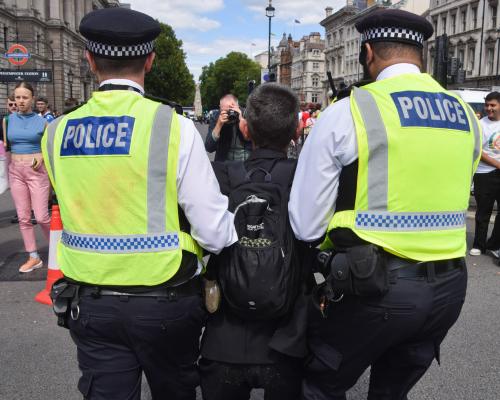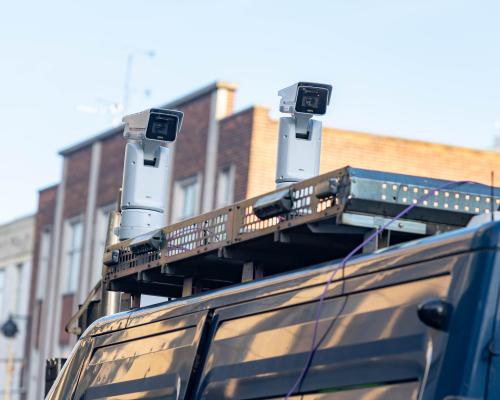
The next mass protest in support of the banned group Palestine Action will aim to be twice the size of the last, organisers have said, as they increase pressure on the government to lift its proscription.
Last Saturday’s protest in Parliament Square was predicated on 500 people signing up but the next one, announced on Wednesday for 6 September in London, is conditional on 1,000 people agreeing to take part.
Defend Our Juries, the pressure group behind the protests opposing the proscription of Palestine Action, said it believed a turnout of 1,000 would be enough to get the ban lifted.
A total of 532 people were arrested at Saturday’s demonstration, all but 10 under section 13 of the Terrorism Act for carrying placards saying: “I oppose genocide, I support Palestine Action.”
The number of people arrested for peaceful protests, their age profile – half of those arrested were 60 or older – and the strain it is putting on the criminal justice system have led many to question the ban.
A Defend Our Juries spokesperson said: “With all the real challenges facing the country, it’s crazy that the Labour government has generated a political crisis over people quietly holding cardboard signs against genocide in Parliament Square. This won’t be forgotten.”
After the weekend’s arrests, Downing Street and Yvette Cooper, the home secretary, said the protesters did not know about the group’s violent tendencies. In response, Defend Our Juries and the Palestine Action co-founder Huda Ammori pointed to intelligence assessments released in Ammori’s continuing legal battle fighting proscription that they said contradicted the claims.
The Joint Terrorism Analysis Centre (JTAC), a government body based within MI5, produced a report on 7 March that said the group “primarily uses direct action tactics”, which typically resulted in minor damage to property. “Common tactics include graffiti, petty vandalism, occupation and lock-ons,” it added.
A separate assessment by the Proscription Review Group (PRG) said a ban would be “relatively novel” as “there was no known precedent of an organisation being proscribed on the basis that it was concerned in terrorism mainly due to its use or threat of action involving serious damage to property”. Nevertheless, the JTAC and PRG recommended proscription.
References to violence by Downing Street and Cooper are understood to refer to an allegation of assault against a single person associated with Palestine Action, which they deny and which relates to live proceedings so cannot be discussed fully because of the risk of contempt of court.
The Defend Our Juries spokesperson suggested that even if the allegation were proved, that would not make the whole organisation terrorist, adding: “When the Labour MP Mike Amesbury assaulted his constituent, no one suggested that that made the Labour party a terrorist organisation.”
They continued: “The public response to our protests has been overwhelming. Despite (or because of) the legal risks, the government has turned an arrest for terrorism into a badge of honour for resistance to genocide. We have been inundated with offers of support from all quarters … The protest will go ahead as long as at least 1,000 people commit to taking part. That could well be enough for the ban to be lifted. If 5,000 people show up, we’re certain the ban will be gone, and with it, most likely, Yvette Cooper.”
The former cabinet minister Peter Hain has said the UK government is “digging itself into a hole” over Palestine Action and that fellow Labour peers and MPs were regretting voting to ban the group.
Lord Hain, who opposed proscription and was a leader of the anti-apartheid movement, said equating the likes of retired magistrates and serving doctors with al-Qaida was “absolutely wrong” and would “end in tears for the government”.



